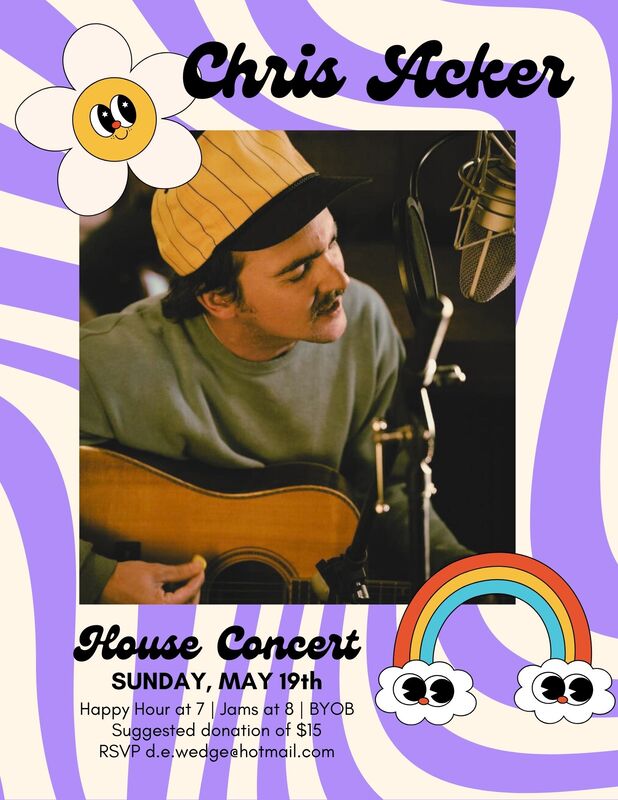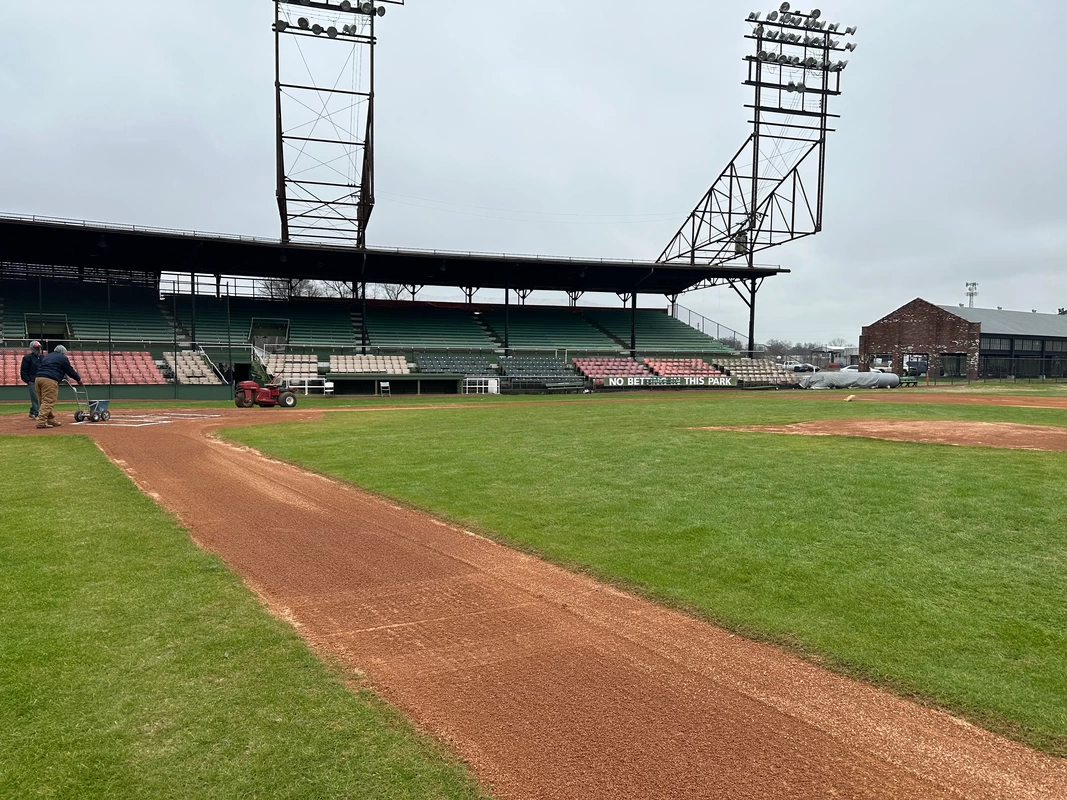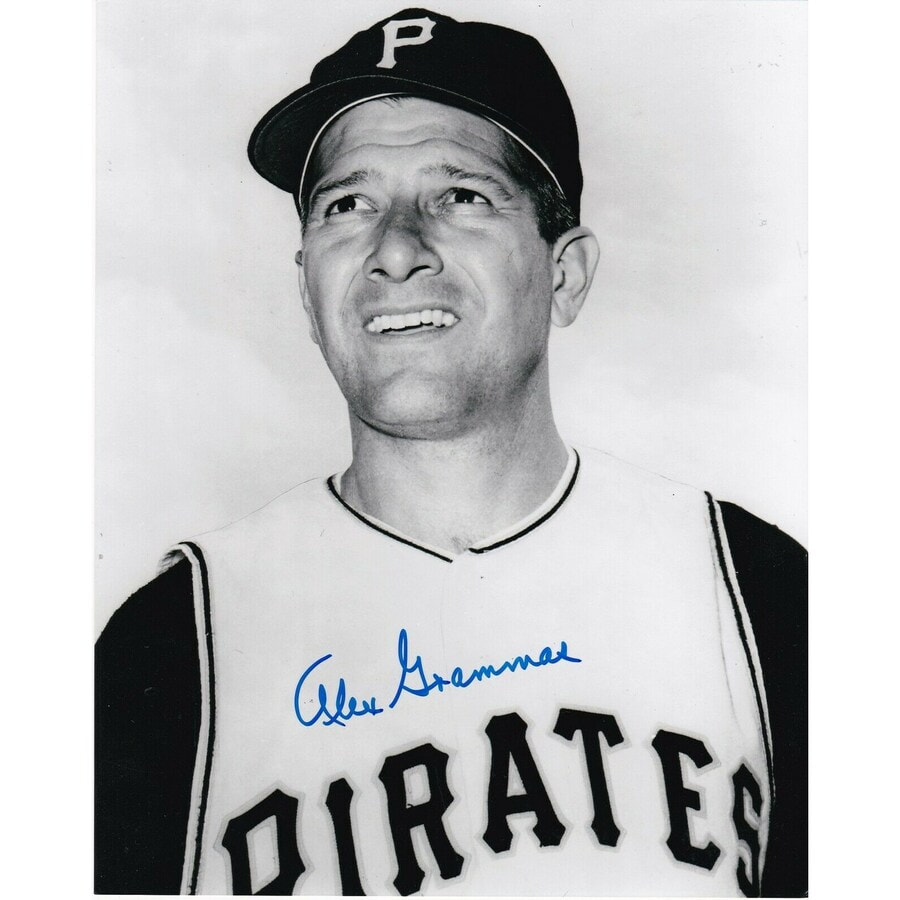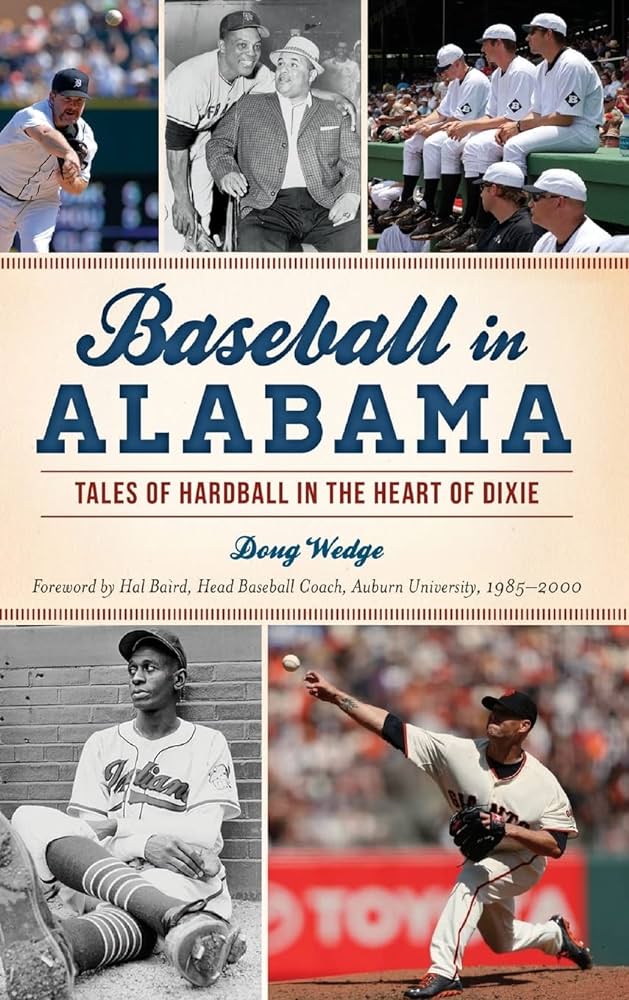|
In the Summer of 2017, I interviewed Jerry Walker. Mr. Walker was a baseball lifer, debuting for the Baltimore Orioles in 1957 as an eighteen year-old right-handed pitcher and retiring in the 2010s after serving as a player, coach, manager, general manager, scout, and advisor. With more than fifty years experience in Major League Baseball and his recent days involved in front offices, I asked Mr. Walker if there was a particular trade he was involved with that he was pleased with. He laughed. "Oh, well the McGwire trade at St. Louis wasn’t too bad," he said referring to the 1997 transaction when St. Louis sent three right-handed pitchers to Oakland in exchange for the slugging first baseman Mark McGwire who went on to club 70 home runs in 1998. Mr. Walker passed on July 14. Rest easy.
0 Comments
Oklahoma City house concert with The Buffalo Gals Band! Friday, July 12, Melissa Carper and Rebecca Patek are BACK! Happy hour at 6:30 p.m., music at 7:00 p.m., BYOB, suggested donation of $15 per person to the artist. Use the contact page for reservations -- JOIN US!
Last week, I was lucky enough to cross paths with Dennis Eckersley. I interviewed this Hall of Fame pitcher in 2015 and profiled him in my book PINNACLE ON THE MOUND. Full of insights, he shared great story after great story and many nuggets about baseball and pitching. But, one of my favorites was a very human story about the struggle to be in the moment. Being inducted into the National Baseball Hall of Fame, he was excited to participate in the festivities and catch up with past teammates and rivals, yet he was preoccupied. He had a speech to deliver, and he was anxious about it.
"You wish you could have the speech, and then go," he says. "But the speech is at the end of the whole experience. So you're uptight about the speech that you don't even have a good time before it! Right? That's me anyway. I always live in this sort of dread of having to perform." But, after delivering the speech: relief. "The heat's not on. Ultimately, it comes down to living in the moment. Enjoying the moment. It's hard for me." Super-talented singer and writer CHRIS ACKER will share his music in a cozy living room setting on SUNDAY, MAY 19. Join us! Message for details / reservations!
I was scheduled to chat about baseball history on April 8, but the eclipse shooed folks outside. Oh well. Here's part of what I was going to share, kicking things off with Rickwood Field.
Let’s go back to August 18, 1910, when the first game was played at Rickwood Field, with the Birmingham Coal Barons taking the field. The team’s owner, A.H. “Rick” Woodward admired the newly constructed steel and concrete baseball park in Pittsburgh, Forbes Field. Using that as a model of sorts, Rickwood was the first minor league ballpark built of steel and concrete – a park meant to last. Let’s step back for a second for some context. Fenway Park in Boston opened in 1912. Wrigley Field was built and opened in 1914. Old Yankee Stadium hosted its first game in 1923. All legendary sites, yet Rickwood is older than all of them. From the beginning, Rickwood hosted a lot of baseball games. Because Birmingham was a railroad hub, Major League teams frequently stopped at Rickwood to play exhibition games. Consequently, in its early days, legends like Ty Cobb, Walter Johnson, and Honus Wagner ran Rickwood’s basepaths and toed its pitching mound. For nearly seventy years, Birmingham had a minor league team that called Rickwood its home field, including the Birmingham A’s in the 1960s that featured rising stars like Reggie Jackson, Rollie Fingers, and Vida Blue who would go on to anchor the Oakland A’s that won three consecutive World Series in 1972, 1973, and 1974. During its early days, Rickwood operated in a segregated South. As the Barons played in the Southern Association or later the Southern League, a new team formed in 1921, the Birmingham Black Barons, that played in the Negro Leagues. While the white Barons were on roadtrips, the Black Barons played home games in Rickwood. Black Barons alumni include Hall of Famers Mule Suttles, Satchel Paige, and Willie Mays from nearby Fairfield, Alabama. With this combination of exhibition, minor league, and Negro League games, 181 of the 351 members of the National Baseball Hall of Fame have played, managed, or umpired at Rickwood Field – over fifty percent of the Hall of Fame membership. Things change, and time marches on. The Negro Leagues fizzled in the early 1960s, and the minor league Barons left Rickwood for the suburbs and a new, glitzy stadium after the 1987 season. Rickwood still stands, though, and it continues to host baseball games, serving as the home field for Miles College. Since 1996, the Barons annually return to their old ballpark for one game each season, the Rickwood Classic. A day game, teams wear replica flannel jerseys from the past. Umpires follow suit and wear old-timey gear and bow ties. A small brass band plays in between innings. The scoreboard is operated by hand, with wooden numbers dropped into slots to show the score. Downtown Birmingham shimmers in the distance as you read signs painted on the outfield fence that say “It’s Nice to Have You in Birmingham,” “Burma-Shave,” and “Drink Coca-Cola – Relieves Fatigue.” The atmosphere makes you feel like you’re stepping back in time. And, this year, on June 20, the big leagues return to Rickwood, except this time, it’s not an exhibition. The San Francisco Giants will play the St. Louis Cardinals at Rickwood for a regular-season Major League Baseball game. Rickwood is a special place for me. I like baseball and history, and Rickwood is a rich combination of the two. It’s fun to imagine all the baseball played on that field for the past 114 years. There’s that, and I used to live in Birmingham, and I would take my kids to the Rickwood Classic each year. One of my favorite things about the Classic is that, after the game, ushers open the gates to the field. Kids can run the bases, or you can step onto the outfield grass and play catch. I have some great memories of my son standing on the bullpen’s mound when he was twelve or so and winding up and tossing pitches to my daughter, crouched as the catcher, of being on a blanket of the greenest grass in the outfield and watching my daughter Sophie rare back and throw the ball and seeing its threads spin as they moved closer to my glove. And, then, a few years later when Sophie was in high school and serving in student government, seeing her approach Alabama Senator Doug Jones in between innings at the Classic, stick out her hand for a shake, and say, “Hi! I’m a senator too!” I have a few stories that I hope you’ll find interesting about Rickwood Field and people’s experiences there. The first is from Bob Veale. Mr. Veale is eighty-eight years-old. He was born in and grew up in Birmingham. He became a Major League pitcher, playing eleven seasons for the Pittsburgh Pirates from 1962 to 1972 and then three seasons for the Boston Red Sox. In 1964, he led the National League in strikeouts with 250. He still holds the Pirates team record for most strikeouts in a season – 276. When he retired, he had won 120 games during his career and posted an exemplary 3.07 earned run average across nearly 2,000 innings of work. Mr. Veale was born in 1935, and he grew up in the segregated South – actually near Rickwood Field. I asked him to share about his experiences there. The following is from Baseball in Alabama and the chapter about Bob Veale: “He learned baseball by playing it in the streets behind Rickwood and picking up tips from his father, a former pitcher in the Negro Leagues for the Homestead Grays and in the Birmingham Industrial League comprised of teams from the different iron and steel mills. At Industrial League games, young Veale saw Cat Mays, Willie Mays’s father, play. Veale says Cat was “a hell of a lot better” than his legendary son. “Called Willie ‘Buck.’ Called him ‘Buck Duck’ because, when he walks, he wobbles, you know? And, he was a hell of an athlete in the Negro Leagues, [Willie] Mays was. He’ll catch a line-drive bare-handed. And swing with reckless abandon.” Veale’s first job was at Rickwood Field. As a boy and teenager, he sold sodas. “I used to be an ace capper. Used to cap four trays at a time. And, Eugene Black used to pop the popcorn. And, everybody chipped in and bagged the peanuts before the vendors went out. And, when they got Coke in the bottles, they stopped selling it after so long because they used to throw them out on the field. I used to collect them.” As Veale played more baseball, he caught the attention of Barons’ management. “When the white Barons would be playing, I used to go over there and throw batting practice sometimes.” 1950s Alabama presented segregation challenges. At Rickwood, Veale sat in different sections depending on which team was playing. “We would sit in right field when the white Barons played, and we could sit anywhere when the Black Barons played.” Rickwood and baseball are no different than the rest of the country when it comes to challenges and struggles with race. Today, it’s jarring to sit up along the third-base line (pro tip – it’s the best place to catch some breeze on a hot day) and look over to the right-field stands and think that, at one time, segregation was a part of this park. Moving ahead to the 1960s, I want to share a story from my friend Joe who grew up and still lives in Birmingham. Joe and his dad went to games at Rickwood when Joe was a boy in the 1960s, and, at one outing, they saw an Alabama icon, Paul “Bear” Bryant who coached the University of Alabama football team for twenty-five seasons and won six national championships. Bryant was seated next to Charlie O. Finley who owned the Kansas City and Oakland A’s from 1961 through 1980. Born outside of Birmingham in Ensley, Alabama, Finley served as a batboy for the Barons when he was a kid, and he loved baseball. As an owner, he had loads of ideas to make the game more entertaining. Some were adopted – thank Mr. Finley for the designated hitter and night-time World Series games. Some of his suggestions, like orange baseballs and orange bases, didn’t gain traction. At any rate, we’re at Rickwood in the 1960s. Finley arranged for his hometown to be a minor league affiliate of the A’s. My friend Joe and his dad Frank went to a game that Finley and Coach Bryant attended. Joe picks up the story from here: “I think Finley hired someone related to Bryant to run the Birmingham A’s. Don’t think it was his son because he wouldn’t have been old enough. Maybe a cousin or nephew or something. I assume that’s why Bryant and Finley were both at Rickwood. "My dad loved baseball and knew Finley was stacking the Birmingham team. He took me to see Reggie Jackson. The team also had Rollie Fingers and Vida Blue and so many others. "I know where I was sitting – hardly anyone there. My dad always wanted to sit behind first base because that’s where all the close calls were. We were behind first base, and Finley and Bryant came in and sat behind the dugout. I didn’t know who Finley was, but I sure as hell knew who Coach Bryant was. I was scared to go down there, but my dad finally talked me into it. I asked for Coach Bryant’s autograph, and he was really kind although I can’t remember what he said. I’ve lost the autograph. "Didn’t understand the history of Rickwood then. As I started to understand it and the importance of that place to baseball, it occurred to me that, not only did that place host some of the best baseball players of all time, it also hosted, for one day, the greatest (now second greatest) college football coach of all time. What a day for a kid.” Joe then adds, “It’s amazing how a day like that can be so unforgettable in a person’s life.” The A’s left town following the 1975 season, and Rickwood was without a minor league team until 1981 when Art Clarkson brought the Barons back to Birmingham and Rickwood, now as a Detroit Tigers affiliate. Don Heinkel, who had an outstanding college baseball career at Wichita State, played for the 1983 Barons that won the Southern League championship. When asked about his experiences and memories about the old ballpark, he chuckles. “Old Rickety-wood. Well, boy, let me tell you: in the Birmingham summer heat, it was a sauna in those dugouts because they were dark green. And, they were small. Boxed in underground. But, I really enjoyed the tradition. The atmosphere there was good. We had a lot of people come to the games, and they enjoyed baseball. Art Clarkson, our owner, made it fun to come to the ballpark.” Although the team returned to Rickwood in the early 1980s, by the end of 1987, Rickwood’s tenure as the home field for the Barons was ending. The following season, the Barons moved to a new ballpark at the Hoover Metropolitan Stadium in the suburbs. Jack McDowell pitched the final game at Rickwood Field for the Barons. The Barons were then an affiliate for the Chicago White Sox, and McDowell was the White Sox’s first-round draft pick in 1987, fifth overall selection, out of Stanford University. McDowell would go on to become one of the best pitchers in baseball with his split-finger fastball leading him to win the 1993 American League Cy Young Award, but, at this point, McDowell was brand new to professional baseball. About pitching in Rickwood and closing its chapter as the home field to a minor league team, McDowell says: “I mean, I just got the minor leagues, so I didn’t know anything about anything. So, you get there, and you’re like okay, so this is old and wooden and crazy. I didn’t know anything else about pro ball at all. Looking back on it now, it’s crazy. It was older than Comiskey at the time. Older than Fenway. So, yeah, to be able to throw the last pro game there, I guess, it’s cool. It was old and small and all the things you would expect it to be, being an old stadium.” And, now we’re back for one game between the Cardinals and Giants in June. Willie Mays, now ninety-two years-old, is scheduled to be there. And, 114 years later, outfielders are still chasing down fly balls, infielders are still scooping up grounders, pitchers continue to look at their catcher for signs, and hitters continue to step into the box, wanting to whip their bats around and send the ball sailing to drop in for a hit at Rickwood. Ninety-eight years ago on April 3, Alex Grammas was born. In 2014, I was fortunate to interview Mr. Grammas about his experiences growing up in Birmingham, serving his country, attending Mississippi State, playing ten years in the big leagues, and serving as a third base coach for twenty-five seasons. One of my favorite stories Mr. Grammas told was about coaching the 1965 Pirates with his friend and new manager Harry Walker:
Grammas understood how to treat players so they played relaxed and well. The 1965 Pittsburgh Pirates were an incredibly talented team with future Hall of Famers Roberto Clemente, Bill Mazeroski, and Willie Stargell along with ace pitcher and Birmingham native Bob Veale who won seventeen games and rung up 276 strikeouts that season. A month into the season, though, the team was playing poorly, winning only nine games but losing twenty-four. Grammas sensed his friend Walker was part of the problem. “He’d push them, guys to do this, that. But, when the season started, he was constantly [instructing]. A guy’d be hitting, and [Walker would] be hollering about holding the bat and all that. It affected us. You know, you’re trying to concentrate on the pitcher, and you got somebody screaming at you from the dugout. God dog it.” Recognizing he wasn’t solving anything if he stood by silently, Grammas approached Walker privately. “I’ve got to talk to you,” Grammas said. “What’ve you got there?” Walker asked. Grammas began, “You know, going to spring training, you took over the club, and we had a hell of a spring training the way you were stressing how things would be done.” Walker nodded. Grammas continued. “Now that the season’s started, you ought to back off a little of that approach because now you’re trying to teach, but you can’t be teaching every day here. Every day here, you can’t do that.” Walker tensed. “What am I supposed to do? Am I supposed to get all over them, or am I supposed to back off?” Grammas said, “I’m going to tell you something. I going to tell you it as straight as I can. Because I know you better than most people do, and you know me. But between standing in the corner like a goddamn dummy or overdoing it, there are two extremes. And, between those extremes is what you’ve got to find. You can’t sit over there and over-do it this way and get mad. In between those two extremes is a happy medium, and that’s what you’ve got to find.” Walker listened. He relaxed. The team started to play better and have more fun. “From that day forward, we played the best ball in the league. We almost won the damn pennant,” Grammas says. Grammas believes Walker listened to him because of Grammas’s honesty. “He knows I’m not a bullshitter. He’s the same way. He didn’t bullshit you.” (From Baseball in Alabama: Tales of Hardball in the Heart of Dixie -- The History Press) Join us in our cozy living room on Friday, March 22, to catch Kyle Reid and his amazing beats! Message for details / reservation! (Photo credit: Michael D. Duncan)
Rickwood Field, the oldest ballpark in America, has hosted countless baseball legends, and more memories will be made as the Field of Dreams series continues on June 20, 2024 with the St. Louis Cardinals taking on the San Francisco Giants in Birmingham, Alabama. Prep and refresh for the game by checking out Baseball in Alabama and its stories about Rickwood through the years. And, take your glove to the game -- nothing like stepping onto the field's grass and having a catch.
Oklahoma City house concert!!! Join us to hear JUDE BROTHERS and JESS HARP on January 13!!! Message for reservations!
|
Baseball History
Capturing and sharing moments from the National Pastime. Archives
February 2024
Categories |
Proudly powered by Weebly










 RSS Feed
RSS Feed